How do I conserve air while diving?
We hear this a lot. If you are familiar with diving then you know the amount of remaining air in your tank is often turned into a competition among divers. While some friendly competition never hurt anyone, remember everyone’s body is different!
FACT: Different body types are going to require more air than others. If your body is stressed or tired, it is not going to operate at 100% and therefore use more air.
However, no one wants to be the guy or girl who causes the rest of the group to end the dive early because they are low on air.
If you are struggling with air consumption, or tired of frequently running low on air… or you simply want some tips to beat out your buddies.. you have come to the right place! These tips will help.
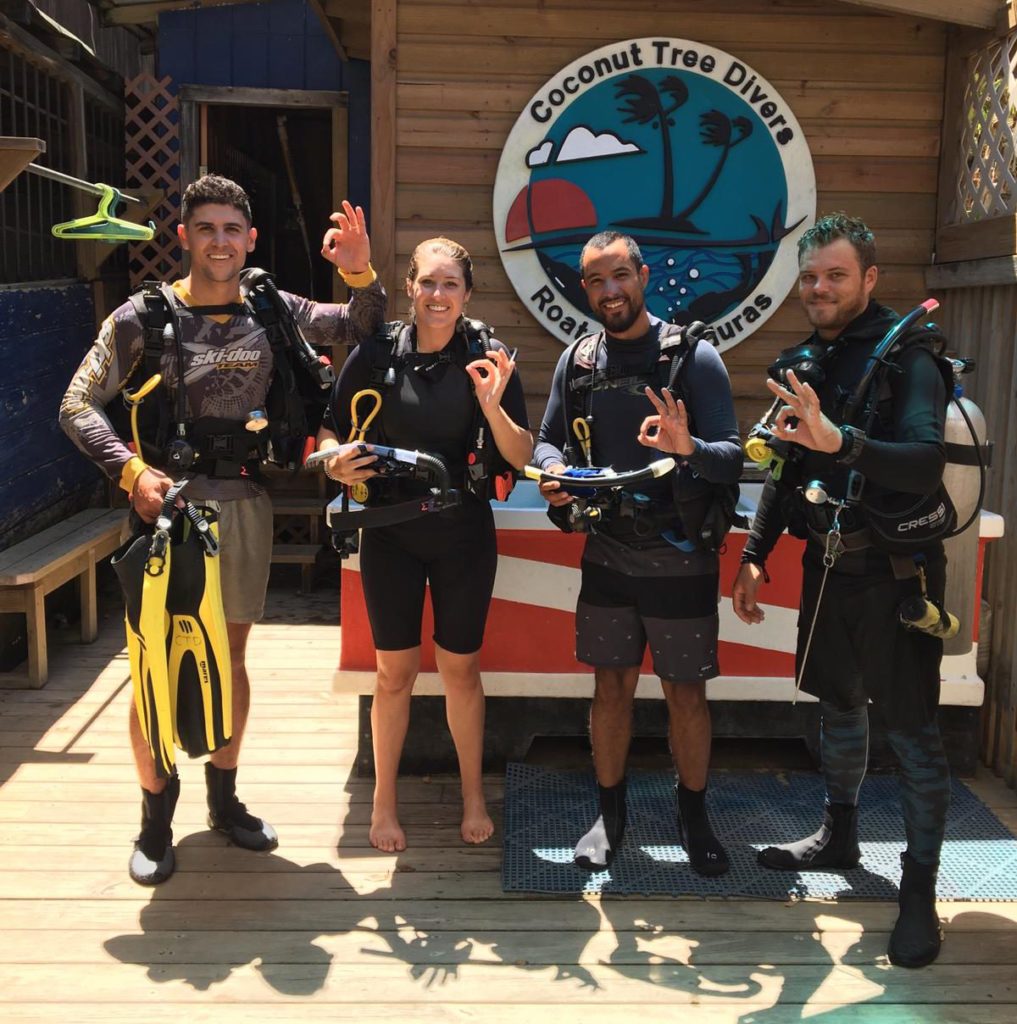
Some happy divers at our shop, Coconut Tree Divers Roatan, Honduras!
Tips to conserve air while scuba diving
Breathe slowly and deeply.
AKA control your breath, be conscious of it. Ever taken a yoga class? If so it’s the same concept. Deep breath in, slow exhale out. Try to pause a second after your deep breath in, do not hold your breath, simply pause, then exhale. A deep breath, compared to shorter more frequent breaths, allows a greater amount of fresh oxygen to be absorbed by your body. To get your body familiar with this breathing try counting as you inhale and match that count as you exhale. Keep that count in your head until your body becomes familiar with it.
Control that buoyancy.
The better your buoyancy control, the better your air consumption will be. The constant manoeuvre of going up and down requires energy expenditure, causing more air intake. As well as inflating/deflating your BCD frequently and using your fins to compensate for your buoyancy. All of this drains air and energy. Practice is everything when it comes to buoyancy control. Have patience with yourself, you will get there… and when you do your tank will remain fuller longer!
An excellent way to improve your buoyancy is obtaining your Advanced Open Water certification. One of the five dives you could elect to take is called Peak Performance Buoyancy, it is solely focused on buoyancy and guaranteed to help you improve!
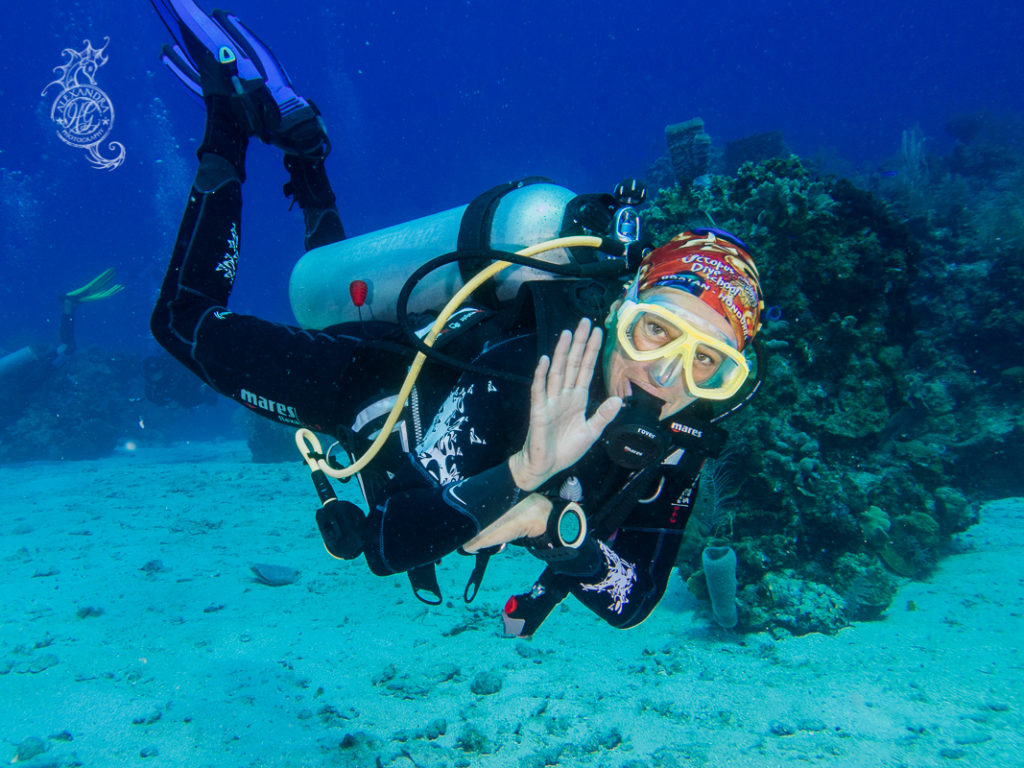
Dive slow and steady.
Gear check please.
Always make sure to check your equipment for leaks with your buddy before each dive. Be sure to check your o-ring, inflator hose, and all connection points. If you are unsure how to do so, simply ask one of your dive leaders to show you how! No leaks is a sure way to conserve air while diving.
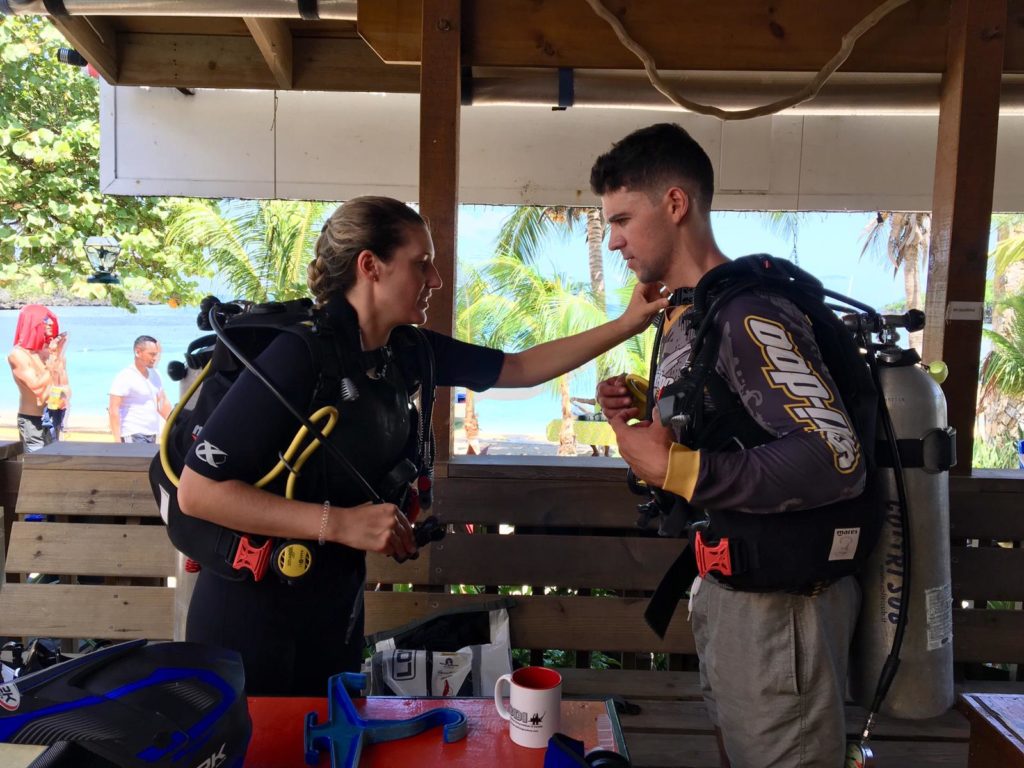
Streamline your dive.
Dive horizontal, AKA don’t be a seahorse! (ugh how cute are seahorses though?!) Getting your hydrodynamics down will help you maintain air. When your body is in a vertical position underwater it automatically has less control. You start using your arms, your fins are flipping around more, and overall you are expending way to much energy. Get horizontal, make sure none of your equipment is dragging, and keep your arms close to your sides. Arms are not to be used to manoeuvre your body underwater, keep them at your sides, it is all about your legs and fins! Speaking of letting your legs and fins do all the work…
Perfect your kick.
Your fins are your biggest asset. When used correctly they will get you to where you want to go with minimal effort. Avoid bicycle kicks, try frog kicks! Long frog kicks allow the fins to push water behind causing you to soar forward, while bicycle kicks slice through the water and propel you forward less. Take a look at your dive leader, how is she or he kicking? Try and mimic that, kick from your hips not just your lower legs and you will save air!
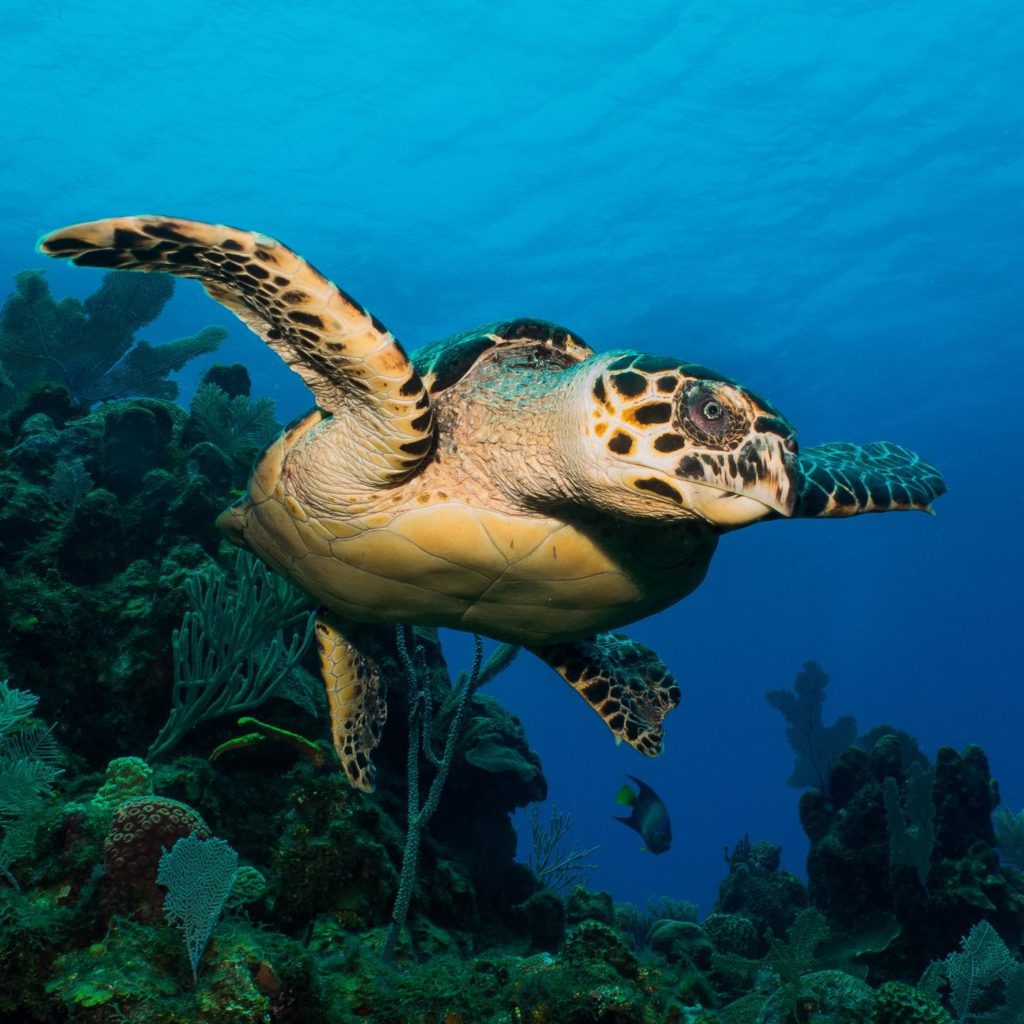
Dive shallower.
This is a super helpful one, especially for those really struggling with air consumption. Just like you learned in your open water certification, the deeper you go the more air your body requires. Try diving a few feet above the group, it can make a big difference in how much air you consume.
Keep calm and carry dive on.
Being nervous underwater is the quickest way to empty your tank faster than your fellow divers. The heart rate goes up and your body uses more oxygen.
The solution to this starts above water. Take a moment before entering the water to visualize your decent and dive, go over the motions and become comfortable with the idea of getting in the water. It may sound funny but talk to yourself. Tell yourself ‘this is going to be a great dive, I am calm.’ Jump in the water, check in with yourself often and practice that deep slow breath like mentioned above!
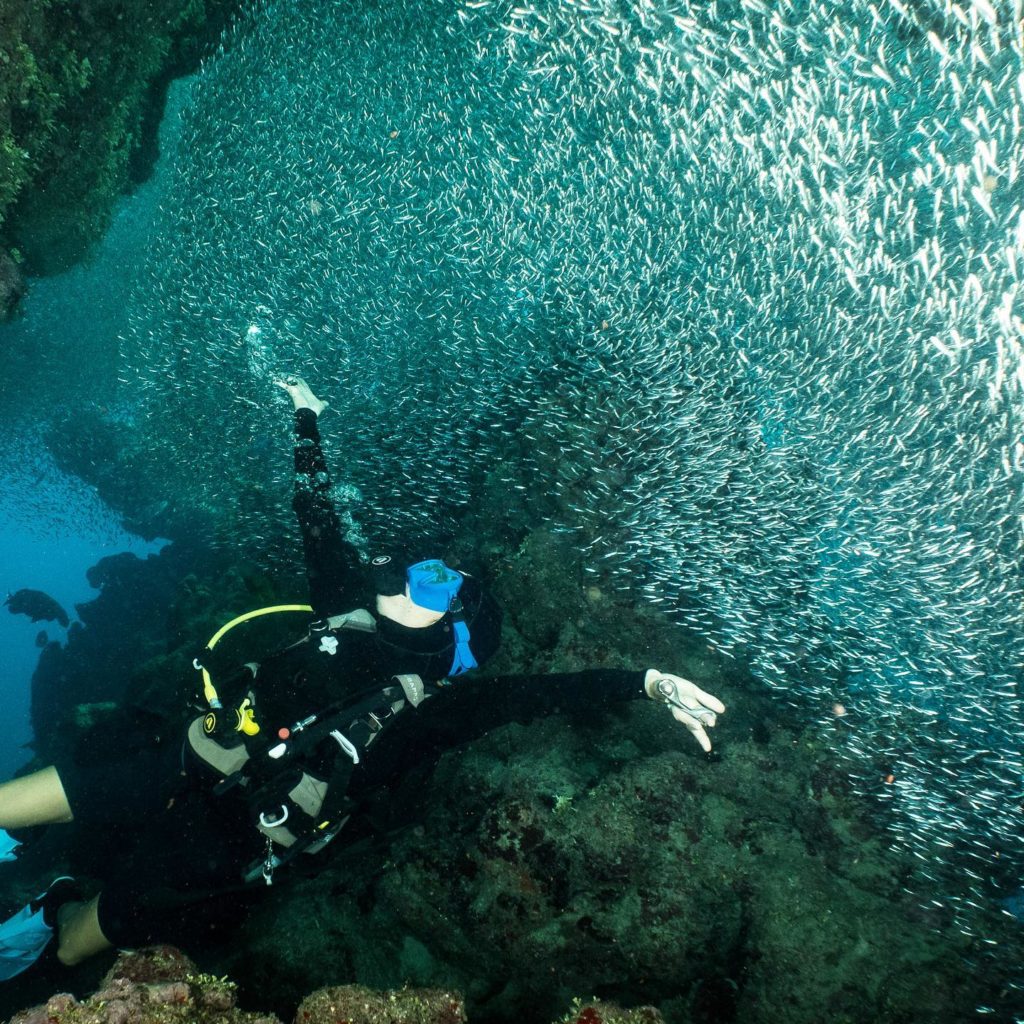
Swimming in a sea of Silversides in Roatan Honduras
Lets sum it up
Next time you are about to the hop in the water.. check your equipment for leaks, take a minute to mentally prep yourself for your time in the water, practice your breathing pattern above water then jump on in. As you descend keep focusing on that breathing, then once at the bottom take a minute to really find your buoyancy while keeping that breath. Stay streamlined, go slow, perfect that frog kick and have a kick ass dive…. you got this!
Whether it is to last a full 55 minutes underwater or to beat out your buddies… Follow these tips and you are certain to save more air while scuba diving!
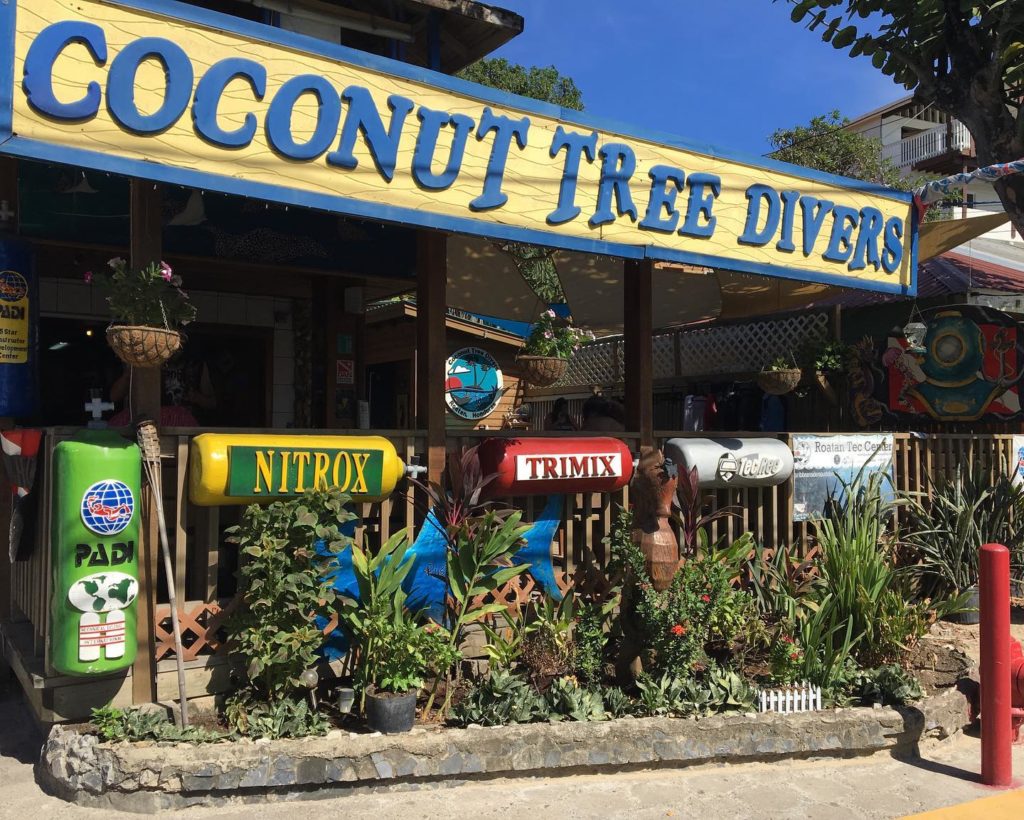
Our Coconut Tree Dive shop in Roatan, Honduras!
We would love to have you come dive with us!
